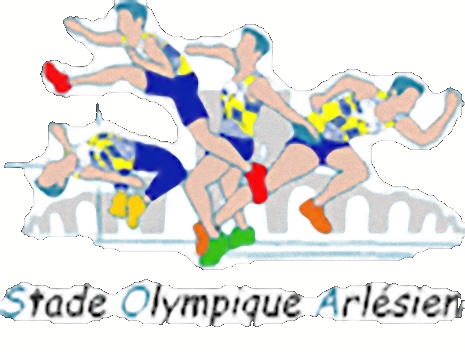This article is directly inspired by a discussion I had with my Décapassion friends, Frédéric and Pierre Gousset. We were talking about one-hour decathlon and then they mentioned the Iron Deca organised in Arles roughly ten years ago. I don't know how long this event survived (probably just two-three years) but it piqued my curiosity and I decided to follow the trail. The Gousset had devoted an article to this event entitled "how long should a decathlon take?" where they were mentioning an article by ukrainian coach, A. Fatieiev, published in New Studies in Athletics and who was addressing the question whether a one-day decathlon was possible. Having read Fatieiev's article I decide to present my ideas in this post.
But let's start at the beginning. The Stade Olympique Arlésien organised, in 2013-15, what they called the Iron Déca, a meeting where the whole decathlon (heptathlon for the women) was held in one day instead of two. The organisers were planning two sessions of 2h30 separated by 4 hours of rest. Given the tight schedule, the competition was limited to groups of 8 athletes. Preparing the soil marks for the jumps had to be done before the competition. But, most important, no rule modification concerning the jumps and throws were introduced. So, it was a perfectly normal decathlon, condensed in just one day.
The only result I could find is that of the 2013 winner, Bastien Auzeil, with 7396. His best "normal" decathlon performance that year was 8022 points, situating the one-day performance at 92% of the best. This is, and by far, not exceptional. Both the world and the french best one-hour decathlon performances (Zmelik, 7897 and Blondel, 7715 points) are at roughly 92% of their maximum, of the same season (Zmelik, 8627 and Blondel, 8387 points). And when one thinks about the out-of-this-world 96% performance of Dadic in a one-hour heptathlon, 6325 to 6552, the performance of Auzeil looks somewhat paltry.
While writing this article I did revisit some of my old articles on decathlon variants. And I ended up invariably at the article on C. Beach's amazing 10 minute decathlon. (If you are a decathlon fan and haven't read it, take a minute to do so).
What is the problem of the one-day decathlon? This is best summarised in the words of M. Avilov, who won the olympic title in Munich, 1972, with a world record of 8454 points: "without the 400 and 1500 m I could easily do a decathlon in one day". And while one can argue that when it comes to the 1500 m one can use his last reserves, the 400 m poses a major difficulty. There is simply no way one can go all out in the 400 m and recover completely in the 4 hours resting period so as to attack the remaining events in top condition. Just to realise the impact of the 400 m it suffices to look at the performances of C. Beach in the 30-minute decathlon (where he scored 6242 points to be compared to his 8084 best). With a personal best of 46.72 s in the 400 m he ran in 53.26 s during the 30-min, followed by 16.96 s in the 110 m hurdles where he has a personal best of 14.23 s. And Beach is not just anybody: he is exceptionally resistant with a 3:59.13 personal best in a decathlon 1500 m (and an even better 1:47.36 in the 800 m). So, even with a 4-hour rest, the one-day decathletes must run a cautious 400 m and, even thus, their 110 m hurdles may be below par.
But let us go back to Fatieiev's proposals. He is worried by the fact that the decathlon, spread over two days, does not attract the interest of the un-informed spectator. Well, let us be serious: if somebody does not care about a two-day decathlon, would he be attracted to a one-day one? I beg to differ. Fatieiev proposes to reduce the number of attempts for throws and long jump to two instead of three. I don't see any appreciable time savings due to this. The proposal of Iron Déca organisers, to prepare the marks for jumps in advance, makes more sense. The one point where Fatieiev is correct is that a disproportionate time is spent in the two vertical jumps. But there is not much one can do about this. In a one-hour decathlon, where the stopwatch for the 1500 m starts at precisely 60 min, whether one is present at the start or not, the athletes have their own strategies for the vertical jumps. But what Fatieiev suggests is to limit the attempts to one at every next height or to allow for three attempts in total. In their article, the Gousset, comment that something like this would convert Athletics to Circus Games. I totally agree with them. Decathlon is the king of events in athletics (an event where, to date, women are banned from, due to World Athletics spinelessness). A two-day decathlon is a perfect event. A one-hour one, albeit totally different, is equally perfect. A one-day decathlon a futile exercise in style.
PS I have just watched the European Athletics team championships and I discovered a new rule applied to vertical jumps: an athlete is out after 4 misses (while at every height the regulatory 3 misses apply). Perhaps a 4 (or 6, or any number obtained after a statistical analysis of existing results) misses rule could be used to speed up the decathlon vertical jumps. This would make more sense than limting the number of attempts.


No comments:
Post a Comment